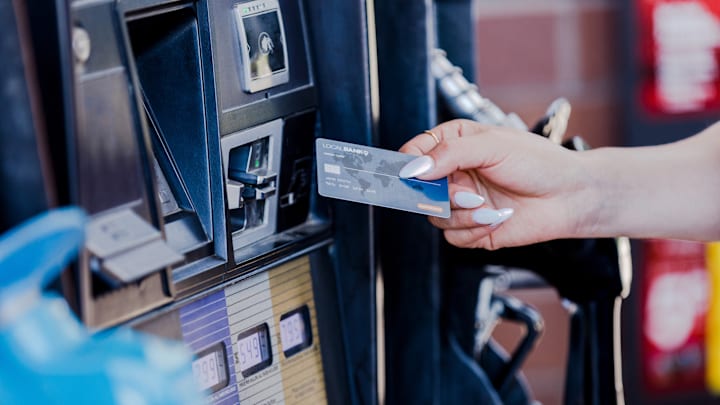The first time you see a $150 hold on your card after swiping it at the gas station, it can be startling. Not to worry, though: That charge was no mistake. What you’re seeing is a temporary hold, also called a “pre-authorization.”
While it’s not an actual charge, it can affect your account balance or spending limit until it clears. If someone’s account is low on funds, that hold can become an issue. Here’s why gas stations do it, how long it lasts, and what you can do to avoid getting caught off guard.
Why Do Gas Stations Put a Hold on Debit Cards?
The gas station doesn’t know how much fuel you’re going to buy when you pay at the pump. To make sure you have enough funds to cover the full transaction, the system places a hold on your card for a preset amount—this guarantees that if you fill up your tank, the station isn’t left covering part of the bill.
This amount they hold varies on the type of card, and on the station itself. According to The Wall Street Journal, the maximum hold for Visas and Mastercards has recently been raised to a whopping $175.
The gas station sets the hold amount, but your bank or card issuer determines how long it stays there. For some users, that hold can last anywhere from a few hours to up to three days. If you enter your PIN at the pump or inside, the hold should lift fairly quickly; if you skip entering your pin and opt for a signature-based debit transaction, on the other hand, that hold will likely last a little longer.
How to Avoid (or Minimize) the Hold
If you want to sidestep these holds entirely (or at least reduce the chance of a surprise) there are a few strategies you can use:
- Pay with cash—this way there will be no hold at all.
- Use a credit card instead of debit. Credit card holds don’t lead to overdrafts, and you may earn rewards depending on your card.
- Enter your PIN at the pump or inside.
- Ask for a smaller pre-authorization. Some stations will manually approve a lower amount if you request it before pumping, although this may take more time.
Gas station debit card holds might be annoying, but they’re a necessary safety measure. By understanding how it all works, you can avoid getting surprised by them (or even avoid them altogether).
Read More About Gas Stations:
